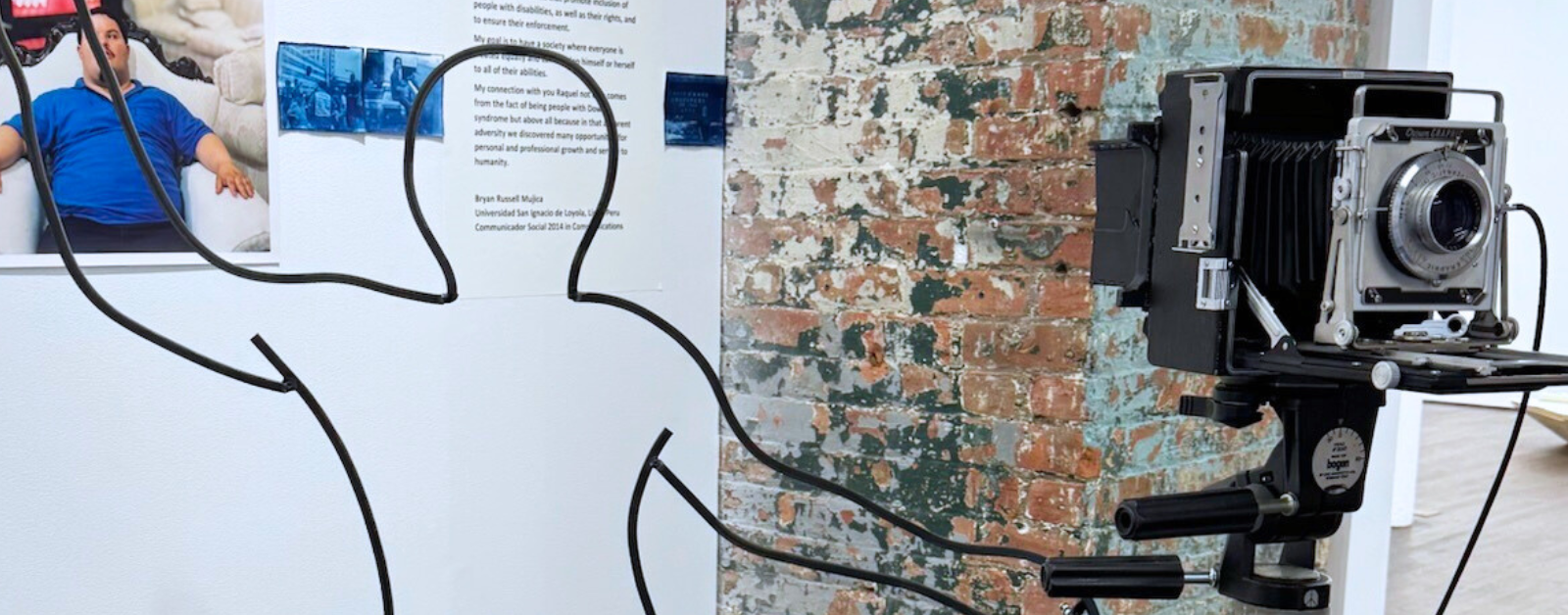Happy New Year!
We’ve taken down our tree and put away the gnomes and nutcrackers. The kids are back at school. We reviewed the highlights of the past year as a family. I’ve set goals and embarked upon Dry January. I also had a chance to talk with the Lucky Few podcast about goal-setting in 2025, and when they asked me to articulate a goal related to our daughter Penny, who (as many of you know) has Down syndrome, I said that I want to change my prepositions. Instead of doing things “for” her, I want this to be a year of doing things “with” her.
I want to organize her room with her instead of for her. I want to bake and cook with her instead of for her. I want to set goals with her instead of for her. Yesterday, she wrote down a series of things she wants to do in the year ahead: use Uber, make a nail appointment, handle her own checking account, put her hair in a ponytail every day, improve her kitchen skills, use the stove, and chop vegetables.
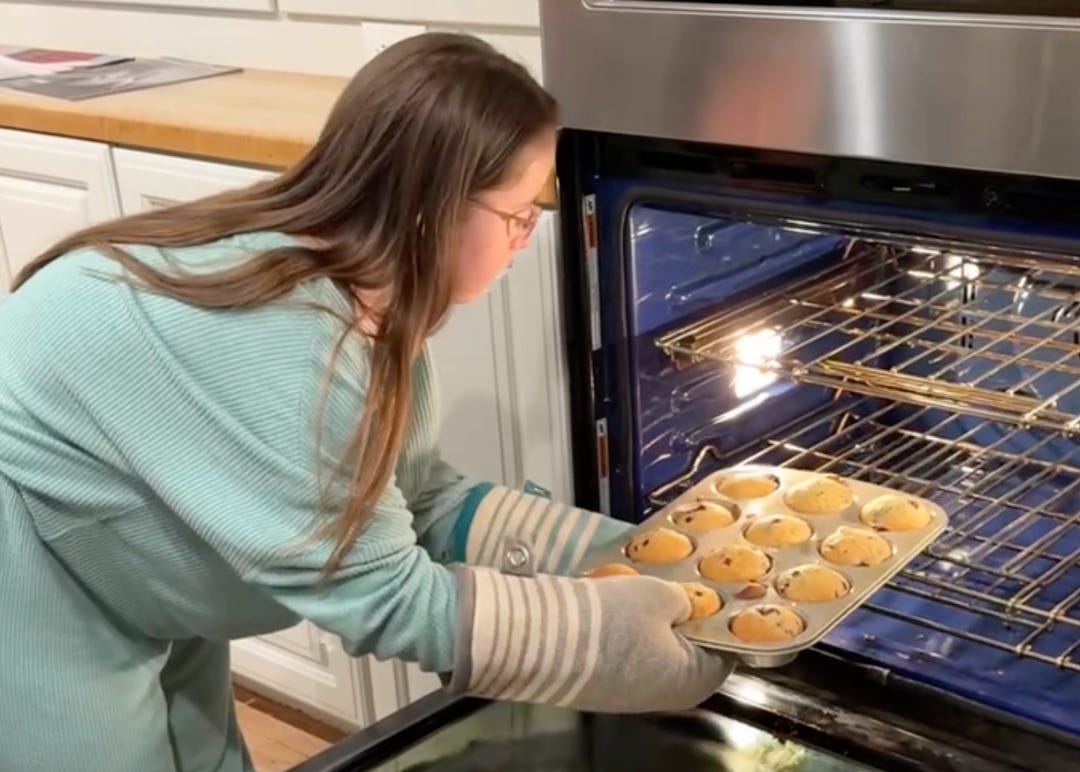
I want to stand alongside her as she takes these steps forward. For Penny, for myself, for our other kids too—as we set goals, I want to both believe in the possibilities inherent in who we are and live within our human limitations.
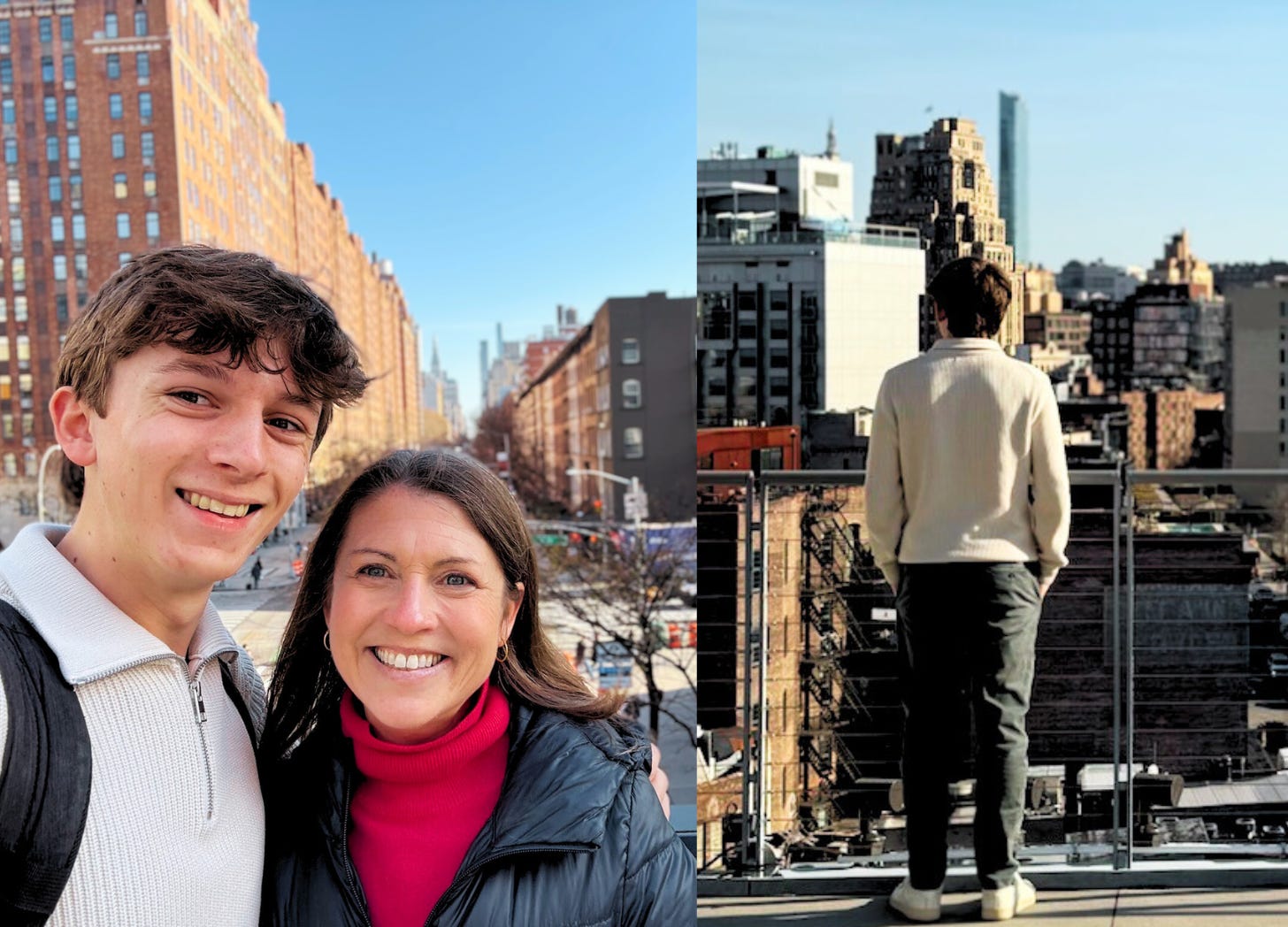
In December, our son William and I had a chance to visit an exhibit in lower Manhattan featuring the work of Rachel Handlin, an artist who has Down syndrome. I learned about the exhibit through a profile in the New York Times. From the article, I expected to see a series of sculptures where Handlin portrayed the invisibility she experiences as a person with Down syndrome who is often overlooked and undervalued.
Those sculptures were present (and powerful—there’s a whole other essay to write about Penny’s similar experience of invisibility), but the focus of the exhibit was Handlin’s photography and the stories she tells of people with Down syndrome from around the globe who have completed their college degrees.
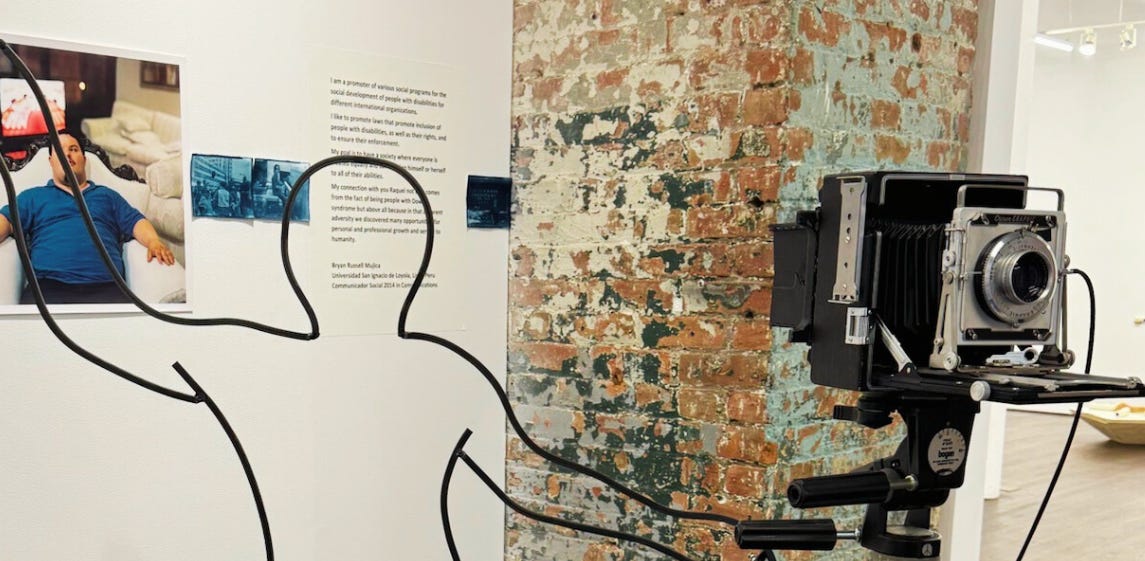
Confronted with the Possibility of a Different Narrative
I found myself comparing Penny to these other people with Down syndrome and wondering why she wasn’t doing the things they are doing. I started thinking I should have pushed her more, restricted the screens more, drilled her on vocabulary more. Thankfully, I’ve learned to notice my old ways of thinking, and pretty quickly I quelled that voice. Handlin’s stories of these young women and men with Down syndrome soon prompted me to consider the possibilities for Penny that I might easily overlook or fail to support. She confronted me with the possibility of a full and flourishing life.
For much of this first semester of Penny’s first experience of a college program, she has spent hours and hours after school at home staring at her computer or phone, watching YouTube videos and Netflix shows. It’s been lonely. And it has felt impossible to change.
Whether it’s the experience of depression or loneliness or anxiety or addiction, so many of us fall into thinking that nothing can ever change. And for those of us whose families are affected by disability, so many of us—myself included!—fall into a narrative of being overlooked, overwhelmed, and alone. Handlin’s exhibit reminded me to envision and live into a narrative of being significant, cared for, and connected.
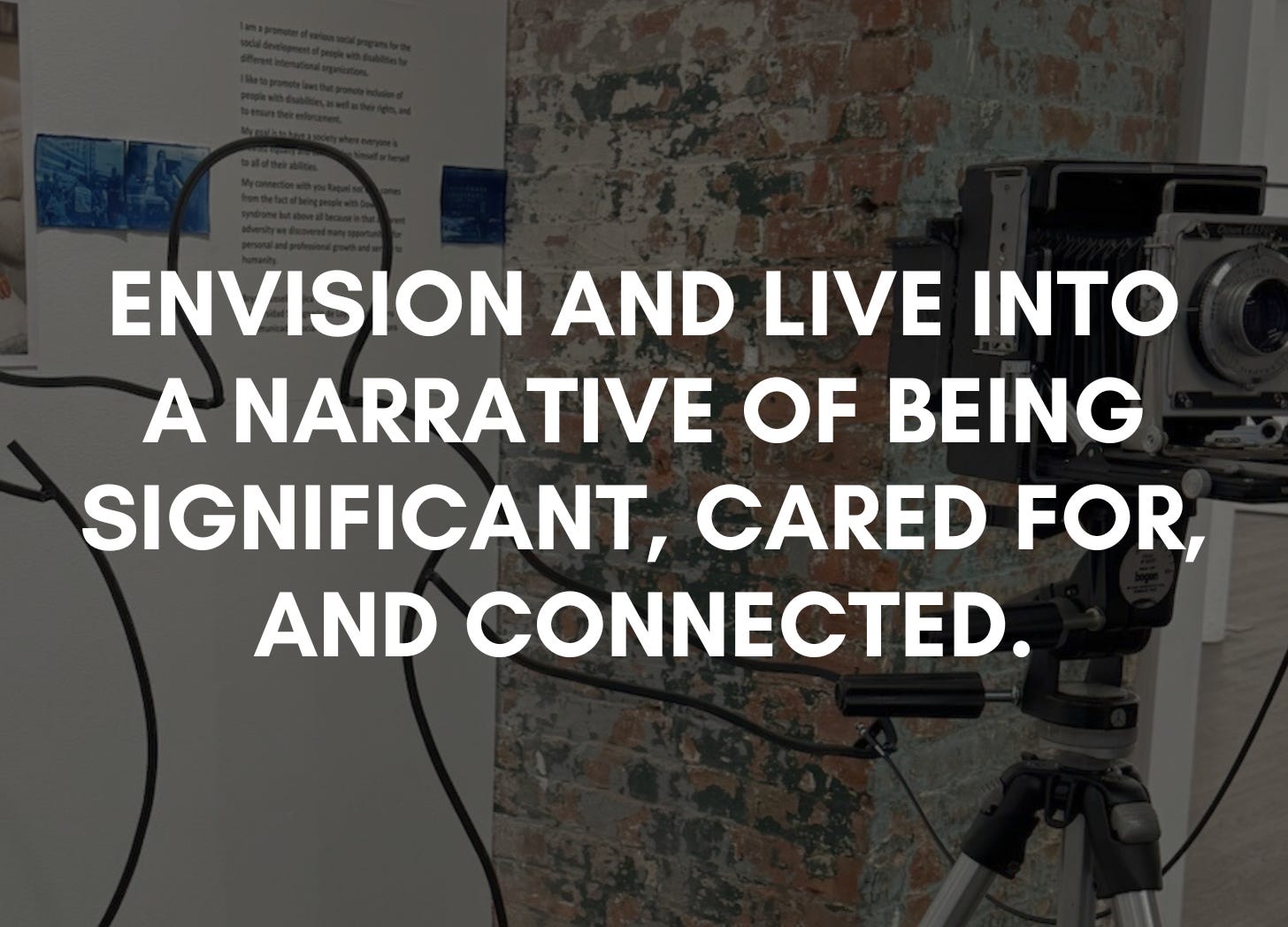
So Penny and I sat down to talk about her goals for 2025. The number one goal she set for herself was not an academic one. Her number one goal is to become more socially connected. The number one way in which I want to stand alongside her in this coming year is in helping her develop social skills, understand social situations, and just hang out with people.
Penny has taken the first steps. She reached out to the leader of her school’s program to ask about forming an after-school club that meets weekly to help develop friendships. We’ll see what happens from here.
In February, I’ll be running my live, virtual workshop, Reimagining Family Life with Disability. This workshop helps parents and caregivers move from being:
- overwhelmed
- overlooked
- undervalued
to:
- knowing our family matters
- finding spaces of belonging
- taking the next step toward a good future for our family
I would love for you to join me! Register now and enjoy 25% off with code FEB25 at checkout.
MORE WITH AMY JULIA:
Let’s stay in touch. Subscribe to my newsletter to receive weekly reflections that challenge assumptions about the good life, proclaim the inherent belovedness of every human being, and envision a world of belonging where everyone matters. Follow me on Facebook, Instagram, and YouTube and subscribe to my Reimagining the Good Life podcast.

